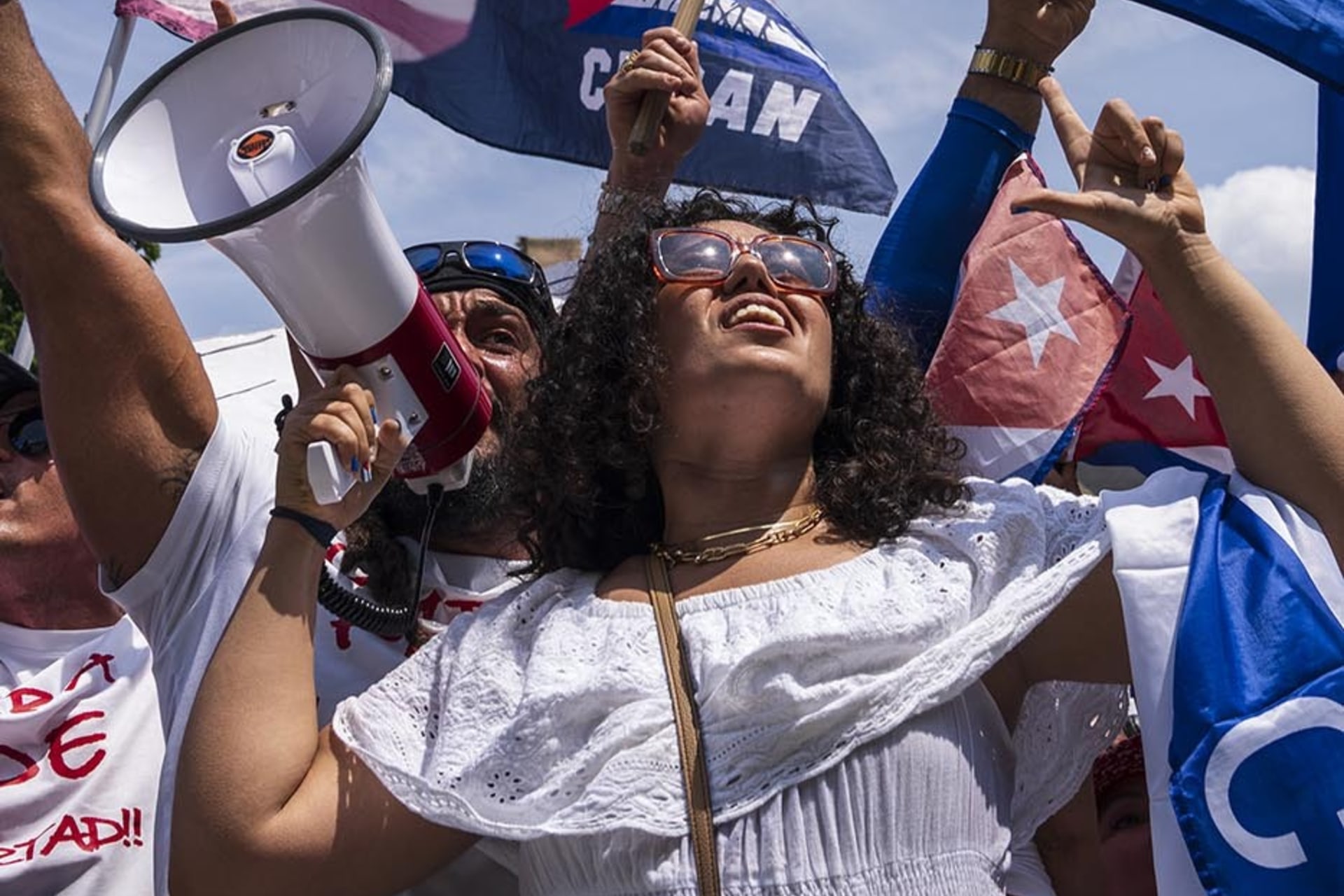IRAQ: Grand Ayatollah Ali al-Sistani
Published
This publication is now archived.
Who is the Grand Ayatollah Ali al-Sistani?
He is the most important Shiite cleric in Iraq, where the population is about 60 percent Shiite. The reclusive, Iranian-born 75-year-old wields great influence over Iraq’s future. Sistani’s clout was confirmed August 27 when he negotiated an end to a bloody three-week standoff between Muqtada al-Sadr’s Mehdi Army and U.S. AND Iraqi forces around the Imam Ali mosque in Najaf, one of Shiism’s holiest sites. Sistani’s intervention stopped the violence after efforts by Prime Minister Ayad Allawi, the Iraqi Interim Government (IIG), and the Iraqi National Conference had failed.
What is the source of his influence?
He is a revered Islamic thinker and one of the most respected Shiite clerics in the world. The majority of Iraq’s Shiite Muslims, as well as millions of Shiites around the world, turn to Sistani for guidance on how to live their lives in accordance with Islamic law. He has also shown himself to be a critical figure on the national political stage. “Without Sistani, they would not have had a solution to the Najaf crisis,” says Kenneth Katzman, senior Middle East analyst for the Congressional Research Service. “The IIG is almost completely beholden to Sistani to keep Sadr in check.”
What are Sistani’s political views?
He favors an Islamic state, but not a theocracy as in neighboring Iran. Sistani has said that no law in Iraq should conflict with Islamic principles, and he wants Islam to be recognized in law as the religion of the majority of Iraqis. However, he has not promoted an official role for Islamic clerics in Iraq’s new government. Sistani supports an Islamic state that is compatible with elections, freedom of religion, and other civil liberties. And although Sistani does not favor violent confrontation with the United States, he has defied U.S. authorities when their plans conflicted with his views.
How have Sistani’s views clashed with the United States?
In June 2003, he issued a fatwa, or religious ruling, stating that the framers of Iraq’s constitution had to be elected, not appointed, by U.S. officials and members of the now-defunct Iraqi Governing Council. In November 2003, he issued a statement saying that elections—not a system of regional caucuses envisioned by the U.S.-led coalition authorities—would be the proper way to select a transitional government. He also demanded U.N. involvement in overseeing the election process. In another difference with U.S. plans, Sistani called for a transitional assembly to ratify an interim constitution drafted by the Iraqi Governing Council and to define the terms under which U.S. and allied troops would remain in Iraq after sovereignty was handed over June 28. All of Sistani’s views have been accommodated.
What is the difference between Sistani’s philosophy and that of Iran’s government?
The Iranian revolution deepened a growing disagreement within the Shiite community over the proper relationship between religion and politics, says Juan Cole, an expert on Iraqi history at the University of Michigan. Ayatollah Khomeini was a proponent of an Islamic political theory that emerged in the mid-20th century called velayat-i-faqih, or rule by Islamic jurist. This theory backed the idea that governments with authority over Shiites should be run by religious clerics in accordance with Islamic law. A more traditional Shiite position—often called quietism—holds that clerics shouldn’t get involved in day-to-day affairs and instead should serve as an authority independent from politics. Sistani has long favored the quietist, or moderate, tradition.
Does Sistani appear in public?
Rarely. Because of his failing health and security concerns, he meets privately with visitors and issues statements from his office in Najaf. When he went to London August 6 to seek medical treatment, it was the first time he had left his home in six years.
How did the recent peace plan affect Sistani’s stature?
Experts say Sistani has proven he’s the most powerful political leader in the country, a role he was in danger of losing to Sadr. “Before Sistani came back [from Great Britain], his popularity had slipped,” Katzman says. “Sadr had seized the spotlight and was saying to Shiites, ‘No one will speak for you but me.’ But Sistani’s return and engagement won back a lot of support,” he says. The majority of Shiites are deeply grateful to Sistani for preventing damage to the holy shrine to Imam Ali, says Amatzia Baram, senior fellow and Iraq expert at the U.S. Institute for Peace. But some middle-class and educated Shiites think Sistani’s plan let Sadr get away with too much, Baram says.
What are the details of the peace plan?
The agreement called for:
- Najaf and Kufa to be declared weapons-free cities
- All foreign forces to withdraw from Najaf
- Iraqi police to be placed in charge of security
- The IIG to compensate those harmed by the fighting
- A census to be taken in preparation for national elections scheduled for January
Many experts say this agreement represents a victory for Sadr, because it does not require the Mehdi Army to disarm or Sadr to face outstanding charges for the murder of a rival cleric last year. The agreement also covers only Najaf and does not address violence by Sadr supporters in other cities, including Baghdad. A Sadr spokesman told Al Jazeera August 30 that Sadr wanted the Najaf agreement “to cover all of Iraq,” but did not provide details. Baram says the cease-fire is still quite fragile. “The whole thing is hanging in the air,” he says.
Why does Sistani support elections?
In part because they are the most legitimate expression of the will of the Iraqi people, Sistani says. If chosen through elections, “the parliament would spring from the will of the Iraqis and would represent them in a just manner and would prevent any diminution of Islamic law,” he wrote in his November 2003 statement. Analysts say Sistani believes elections will put Iraq’s majority Shiites in power, and that group would affirm Islamic ideals if given the chance. “Sistani thinks the elections will lead to a Shia-run regime, and he wants the Shia to cooperate,” Katzman says.
What is Sistani’s background?
Sistani was born near the Iranian city of Masshad, a holy place of Shiite pilgrimage centered on the tomb of Imam Reza, the eighth Shiite imam. At age five, Sistani began studying the Quran, the Muslim holy book, and continued his studies as a young man in the Iranian city of Qom, according to Sistani’s website, www.sistani.org. His rise to eminence began when he moved to Najaf in 1952. There he studied with some of the most important Shiite clerics of the time, including the Grand Ayatollah Imam Abul Qassim al-Khoei, a major figure in the quietest tradition. When Khoei died in 1992, Sistani was selected by his peers to head the most important hawza—or network of schools—in Najaf. He has written many books on Islamic jurisprudence and over the years has gained a reputation as one of the top Shiite religious authorities in the world. Some 10 percent to 20 percent of the world’s 1.4 billion Muslims are Shiites.
Did Sistani have any rivals for leadership of the hawza?
Yes, experts say. One of the most important was Mohammed Baqir al-Sadr, who was gunned down in 1999 along with two of his sons (Saddam Hussein’s forces are suspected in the murder). Sadr preferred the more activist, Khomeini-like tradition, urging underground resistance to Saddam’s rule. Sadr and other critics portrayed Sistani as a coward and referred to him derisively as the “silent authority,” experts say. Today, Sadr’s son Muqtada has positioned himself as a rival to Sistani. Experts say Sistani has not attacked Sadr directly or otherwise addressed Sadr’s challenge to his authority. “Sistani’s doing it the old way,” Baram says. “He’s letting Sadr discredit himself.”
How are Shiite leaders chosen?
They rise by consensus through the ranks, from the level of prayer leader to ayatollah, a title awarded to those who have exhibited mastery of Islamic law and jurisprudence and have attracted many followers. The apex of the hierarchy is the marjah al-taqlid, or object of emulation. Sistani has attained the level of marjah.
What’s the role of a marjah?
A marjah has the authority to interpret Islamic law and provide guidance to Shiites on day-to-day matters. All lay Shiites—even relatively non-religious ones—have a marjah, Cole says. The marjah’s admonitions are often related to mundane questions of so-called personal law, such as whether a Muslim is permitted to wear perfume (yes, according to Sistani) or sell lottery tickets (no—it’s a form of gambling, Sistani says). While Shiites around the world today follow more than one marjah, Sistani is probably the most influential, Cole says.
Is the marjah speaking in the name of God?
No, Islam experts say. He is practicing ijtihad, the competence to use independent judgment to decipher the Quran and other sacred Islamic texts. Only the most advanced clerics are awarded permission by the hawza to practice ijtihad. The interpretation of a marjah is his best judgment and can sometimes be wrong. But according to Shiite tradition, as long as the marjah gives the interpretation his best effort, Allah will forgive any error, Cole says.
Is it significant that Sistani is Iranian-born?
The position of the marjah is similar to that of the pope in Roman Catholicism: he has moral and religious authority across national boundaries. Opponents of Sistani have sometimes played up his Iranian roots in an attempt to argue that he maintains some loyalty to the Iranian state. But Sistani’s views reflect his independence from the Iranian clergy, experts say. “He’s an ally, but not an instrument,” Katzman says. “He doesn’t take orders from Tehran.” Other Shiite groups and leaders in Iraq—such as the Shiite political party Supreme Council for Islamic Revolution—maintain much more active ties with Iran than Sistani does, he says.t
Colophon
Staff Writers
- Sharon Otterman





